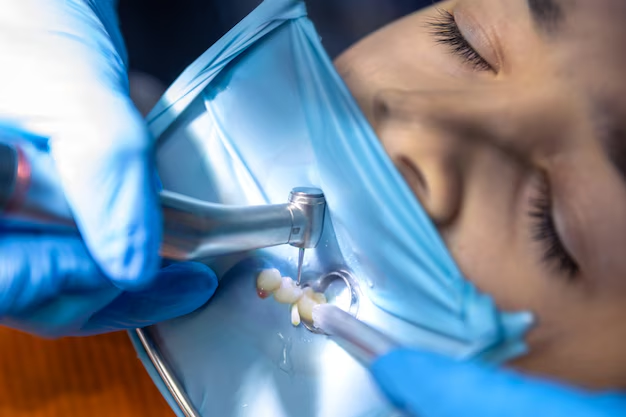Your Guide to Can Cataracts Grow Back
What You Get:
Free Guide
Free, helpful information about Cataract FAQ and related Can Cataracts Grow Back topics.
Helpful Information
Get clear and easy-to-understand details about Can Cataracts Grow Back topics and resources.
Personalized Offers
Answer a few optional questions to receive offers or information related to Cataract FAQ. The survey is optional and not required to access your free guide.
Can Cataracts Grow Back? Understanding the Possibilities and Realities
Imagine walking through a fog-filled room, and only when you clear the mist can you see clearly again. That's what cataract surgery often feels like to those who’ve undergone the procedure, only to find themselves wondering later if the mist could one day return. This concern boils down to a simple question: Can cataracts grow back? Let’s explore this crucial question and examine related aspects that concern those dealing with cataracts.
🌟 Understanding Cataracts: A Brief Overview
Cataracts occur when the clear lens of the eye becomes cloudy, which can lead to blurred vision and, if untreated, can impair daily activities. Typically associated with aging, cataracts can also result from eye injuries, certain medications, or conditions like diabetes.
The Path to Clear Vision
Cataract surgery involves removing the cloudy lens and replacing it with a clear artificial one, a procedure that has become routine and highly successful. But while the surgery has a high success rate, it's natural to be concerned about the aftermath and the longevity of its results.
🧐 Can Cataracts Return After Surgery?
In straightforward terms, once the natural lens is removed, the cataract itself** cannot regrow.** The clouding you experienced was specific to the natural lens, which is permanently gone once removed during surgery.
The Case of Posterior Capsule Opacification (PCO)
While cataracts don't return, there is a condition known as Posterior Capsule Opacification (PCO) that can give the impression of cataracts returning. Also referred to as "secondary cataract," PCO is not an actual cataract. It occurs when a membrane behind the new artificial lens becomes cloudy some time after the initial surgery.
🌈 Symptoms of PCO
- Blurred vision
- Glare and halos around lights
- Difficulty with vision clarity, similar to cataract symptoms
Addressing PCO: A Simple Fix
Fortunately, PCO can be effectively treated with a quick outpatient procedure known as YAG laser capsulotomy. This procedure involves using a laser to clear the cloudy membrane, restoring clear vision.
📝 What Factors Can Influence Eye Health Post-Surgery?
Cataract surgery is generally safe and leads to improved vision. However, maintaining good eye health is essential. Here are some considerations:
Protecting Eye Health
Regular Eye Check-Ups: Regular consultations with an eye care professional help monitor eye health and catch any issues early.
Healthy Lifestyle: Eating a balanced diet rich in antioxidants and vitamins aids in maintaining overall eye health.
UV Protection: Wearing sunglasses that protect against UV rays can help prevent further eye damage.
Manage Chronic Conditions: Keeping conditions like diabetes under control can prevent related eye issues.
Technology and Advancements in Eye Care
Advancements in medical technologies and surgical techniques continue to improve cataract surgery outcomes. New lens designs and surgical methods are being developed to enhance vision quality even further.
🌐 Common Questions Surrounding Cataract Surgery
1. Are there different types of lenses available?
Yes, the main types include monofocal, multifocal, and accommodating lenses. Each type caters to different aspects of vision correction, such as distance, reading, or multifocal capabilities.
2. How long does the surgery and recovery take?
Cataract surgery is typically quick, often lasting about 15 to 30 minutes. Recovery is generally rapid, with many patients experiencing improved vision within a few days.
3. Are there risks involved with cataract surgery?
Like any surgical procedure, cataract surgery carries risks, though they are rare. Potential complications include infection, bleeding, or retinal detachment. Modern techniques and pre-surgical assessments work towards minimizing these risks.
📊 Summarizing Key Insights with a Handy Table
| Topic | Summary Points |
|---|---|
| Cataract Regrowth | Cataracts themselves cannot grow back once removed. |
| Posterior Capsule Opacification (PCO) | PCO can mimic cataract symptoms but is treatable with a YAG laser. |
| Eye Health Post-Surgery | Regular check-ups, healthy lifestyle, UV protection are crucial. |
| Surgery Outcome | Modern techniques ensure effective cataract removal with quick recovery. |
| Lens Options | Monofocal, multifocal, and accommodating lenses are available. |
🚀 Making Informing Decisions and Staying Prepared
While cataracts are a common concern, understanding the full scope of potential outcomes and post-surgery considerations can ease concerns. It’s vital to communicate openly with eye care professionals to ensure you have the information needed to care for your vision long term.
Empower Your Eye Health Journey
Arm yourself with knowledge about cataracts, possible post-surgery scenarios like PCO, and the best practices for eye health. By doing so, you’ll be better equipped to make informed decisions about your eye care, ensuring clear and healthy vision for years to come.
What You Get:
Free Cataract FAQ Guide
Free, helpful information about Can Cataracts Grow Back and related resources.

Helpful Information
Get clear, easy-to-understand details about Can Cataracts Grow Back topics.

Optional Personalized Offers
Answer a few optional questions to see offers or information related to Cataract FAQ. Participation is not required to get your free guide.


